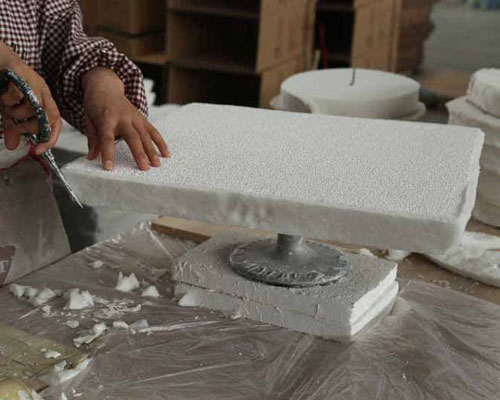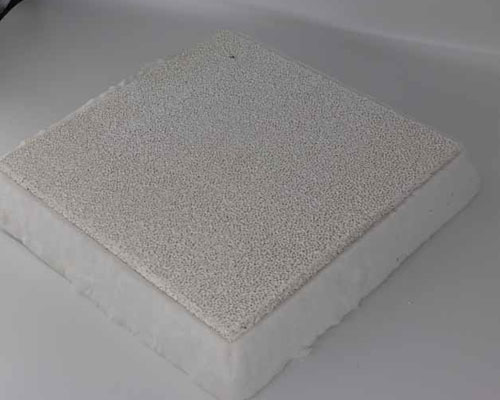Molten metal usually contains solids, such as metal oxides and other impurities, which may cause the final cast product to have undesirable characteristics. Ceramic foam filters have been designed to remove these impurities from the molten metal during the casting process. Typically, the foam ceramic filter is made of refractory materials that can withstand the high temperatures associated with molten metal.
Preferred fire-resistant filters have a foam-like appearance and are referred to as foam filters in the metal filtration industry. These are usually ceramic foam filters. The foam filter has a network of strands that defines a plurality of interconnected openings. Since the flow path through this filter is tortuous, the filtration efficiency is much higher than that of the honeycomb filter.

Refractory Ceramic Foam Filter Manufacturing Process
The refractory ceramic foam filter has a three-dimensional network structure, and has at least one side surface and two opposite flow surfaces. Generally, open-cell foams, such as reticulated polyurethane foams, are impregnated with an aqueous slurry of refractory particles and a binder. The impregnated foam is compressed to discharge the excess slurry, and then dried and burned to burn out the organic foam, and sinters the refractory particles and the binder in the slurry coating. Thus, a solid ceramic foam having a plurality of interconnected voids is formed, and the interconnected voids have substantially the same structural configuration as the starting foam. Although the filtration efficiency is greatly improved compared to the previously described porous filter, the mechanical strength of the ceramic foam filter is relatively weak.
Since the foam filter is porous in all directions and the edge surface is not flat, some molten metal may flow around the edge of the filter or only pass through part of the filter, thereby reducing the filtration efficiency. We use 3 kinds of sealing materials (fiber cotton, fiber paper, expanded cotton) to seal the ceramic foam filter, so that the molten metal is perfectly filtered and does not leak.

